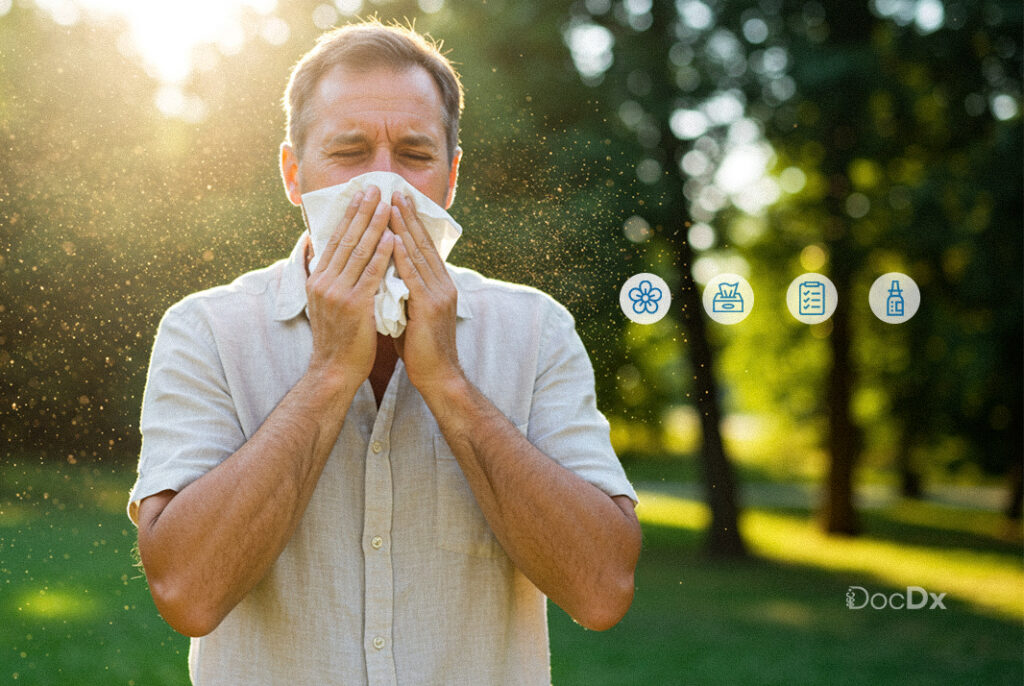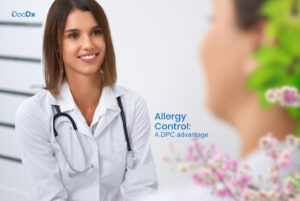Ah, summer—the season of sunshine, BBQs, and beach getaways. But for millions of people, it’s also peak allergy season. If the blooming flowers, fresh-cut grass, or rising humidity turn your vacation vibes into sneeze marathons and itchy eyes, you’re not alone. The good news? With the right seasonal allergy management plan, you can enjoy everything summer has to offer without hiding behind a tissue box.
Let’s break down how to prepare, prevent, and treat those pesky summer allergies with a smart, health-first approach.
Why Are Summer Allergies So Intense?
Most people think spring is the only allergy-heavy season, but summer brings its own set of challenges. Grass pollen, mold spores, and ragweed start making their rounds from late May through August. And if you’re already prone to seasonal allergic rhinitis (aka hay fever), you might feel like summer’s out to get you.
Common Summer Allergy Triggers
- Grass Pollen (especially Bermuda, Timothy, and Kentucky bluegrass)
- Mold Spores (often found in damp areas and mulch)
- Weeds and Ragweed
- Air Pollution (ozone and smog can worsen allergy symptoms)
- Insect Stings (bee, wasp, and fire ant stings can cause allergic reactions)
Signs You’re Battling Summer Allergies
Sometimes it’s hard to tell the difference between allergies and a summer cold. Here’s how to tell:
- Persistent sneezing
- Runny or stuffy nose
- Itchy, watery eyes
- Postnasal drip
- Fatigue or headaches from sinus pressure
If these symptoms linger beyond a few days, it’s time to consider allergy testing.
Get Tested to Know Your Triggers
You can’t treat what you don’t understand. That’s why allergy testing is a smart first move if you suspect you’re reacting to summer allergens. Accurate diagnosis helps tailor your treatment and avoid trial-and-error guesswork.
If you’re in Maryland, allergy testing services and treatment can identify specific triggers and help you develop a plan customized to your immune system.
Why Partnering With Your Primary Care Provider Is a Must
Managing allergies isn’t just about over-the-counter pills. It often requires consistent tracking, treatment adjustments, and preventive strategies—things your primary care provider (PCP) is trained to handle. From annual check-ups to tailored allergy care, your PCP is your frontline defense.
Need a comprehensive approach? Check out these primary care services that cover everything from diagnostic testing to allergy shots.
Physical Exams Can Reveal Hidden Health Links
Sometimes, allergies go hand-in-hand with other health conditions like asthma or sinus infections. A thorough physical exam can reveal complications that might be making your symptoms worse.
Your provider may assess:
- Lung function (especially if you’re wheezing)
- Sinus inflammation
- Skin reactions
- Medication side effects
Over-the-Counter vs. Prescription Treatments
When symptoms hit, many people rush to the pharmacy for relief. But not all allergy medications are created equal. Here’s a breakdown of your options:
Antihistamines
- Great for runny nose and sneezing
- Can cause drowsiness (opt for non-drowsy formulas)
Nasal Corticosteroids
- Excellent for nasal congestion and inflammation
- Best when used consistently—not just when symptoms flare
Decongestants
- Short-term fix for a stuffy nose
- Should not be used for more than a few days
Leukotriene Receptor Antagonists
- Helpful for asthma-related allergies
- Usually prescribed
If OTC meds aren’t cutting it, your PCP might recommend immunotherapy—a long-term treatment that builds tolerance to allergens.
Lifestyle Hacks to Beat the Sneezes
You don’t always need meds to fight back. Sometimes, small changes make a huge difference.
1. Track the Pollen Count
Use an allergy forecast app or website to plan your day. Stay indoors when pollen counts are high—especially in the morning and on windy days.
2. Shower and Change After Outdoor Activities
Pollen sticks to skin and clothing. A quick rinse can prevent allergens from spreading through your home.
3. Keep Windows Closed
Tempting as the breeze may be, it can carry allergens into your space. Use air conditioning with a HEPA filter instead.
4. Use a Saline Rinse
A daily saline spray or neti pot rinse can clear allergens from nasal passages, reducing inflammation.
Nutrition and Hydration Matter Too
What you eat (and drink) affects how your body responds to allergens.
- Omega-3-rich foods (like salmon and walnuts) can help reduce inflammation.
- Hydration thins mucus, making it easier for your body to flush out allergens.
- Avoid foods that cross-react with pollens (like melons and bananas for grass allergies).
When to Seek Emergency Help
Most summer allergies are mild, but some can become serious—especially insect sting allergies or severe asthma attacks. Watch for:
- Difficulty breathing
- Swelling of lips or throat
- Dizziness or fainting
- Rapid heartbeat
These signs require immediate medical attention. Don’t wait—call 911 or head to the ER.
Long-Term Allergy Management Plan
Want lasting relief, not just seasonal survival? Talk to your PCP about building a year-round allergy plan that may include:
- Routine check-ups
- Allergy shots
- Prescription adjustments
- Environmental assessments
A long-term approach is the best way to minimize the summer allergy struggle—before it starts.
Conclusion: Enjoy Summer Without the Sneezing
Summer should be about fun, not foggy heads and red eyes. With a proactive allergy management plan, you can spend more time enjoying the season and less time rubbing your nose raw.Start by understanding your triggers, connect with your primary care provider, and explore allergy testing services in Maryland for personalized help. Pair that with smart lifestyle adjustments and you’ve got yourself a winning seasonal strategy.




